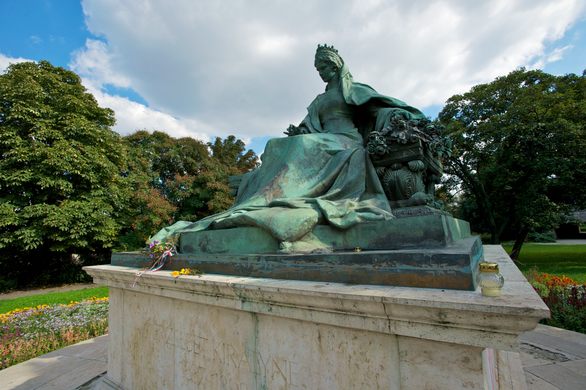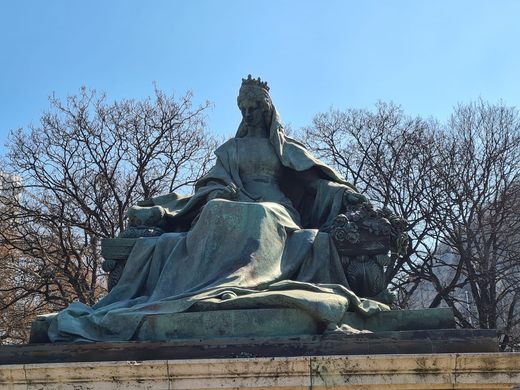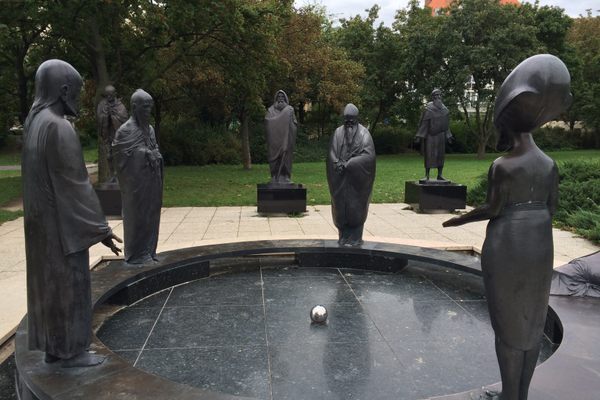Empress Sissi Statue
This memorial to a murdered empress took 20 years to design, then spent 30 years hidden away in storage.
When Elisabeth Amalie Eugenie von Wittelsbach married Franz Joseph of Austria in April 1854, she became the empress consort of Austria and queen consort of Hungary, Bohemia, Dalmatia, and Croatia at the tender age of 17. Nicknamed Sissi, this strikingly beautiful woman was popular across her kingdom, particularly in Hungary, where she won the hearts of her subjects.
But in 1898, the empress was stabbed through the heart by Italian anarchist Luigi Lucheni. Sissi was not been the assassin’s original target, but after failing to find the Duke of Orléans in Geneva, Lucheni chose to kill the empress instead.
People’s devotion to Sissi did not disappear after her death. She was buried in Vienna, but the people of Hungary wanted a memorial in Budapest where they could pay tribute to the empress’s memory.In 1900, a competition was announced to design a memorial of the empress. The judges were so focused on the statue being perfect that it took them almost two decades to choose a winner.
In 1919, sculptor György Zala and architect Rezső Hikisch were selected to create the vaulted monument in which the statue originally stood. But the location of the memorial also proved difficult to decide. Several locations were suggested before a spot near Elizabeth Bridge was eventually chosen. On September 25, 1932, the memorial was unveiled with great fanfare and in the presence of the then-regent of the Kingdom of Hungary.
But this would not be the end of the statue’s turbulent history. In 1953, the Communist regime had the statue removed and hidden away. The vaulted covering where it originally sat was destroyed in the early 1960s to make way for the construction of the new Elizabeth Bridge.
In 1986, Sissi’s statue was finally reinstalled after more than three decades hidden away.

















Follow us on Twitter to get the latest on the world's hidden wonders.
Like us on Facebook to get the latest on the world's hidden wonders.
Follow us on Twitter Like us on Facebook